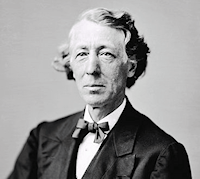Hon. A. G. Jenkins, Member of Congress from Virginia, informed why a Route Agent in his District was removed.
Post-office Department, February 22, 1861.
Dear Sir,—Your letter of the 20th inst. is received, requesting ” distinct and specific answers” to the following interrogatories,—viz.:
1. What are the grounds of the removal of Thomas J. West, late route agent on the line from Grafton to Parkersburg, Va., and of the substitution of another person in his place?
2. Why is it that these proceedings have been carried out on my part without affording you any information of my contemplated action?
3. Upon whose suggestion was I led to remove Mr. West, and by whose recommendations was I induced to appoint his successor?
4. And, finally, whether the same policy of secretly decapitating your friends is to be acted upon hereafter as the settled rule of the Department?
These are plain questions, stated nearly in your own language, and, in view of the custom which for a number of years has prevailed in the Department, of consulting members of Congress in regard to appointments and removals in their respective districts, it is not unnatural and perhaps not unreasonable that you should ask them. But you will excuse me for remarking, in all kindness, that, in the first place, it is contrary to the rule of the Department to communicate written answers to such inquiries; and, secondly, that the right which you seem to claim, of controlling the appointments in your district, has no existence in fact. Excepting the comparatively few cases in which the law imposes this duty on the President and Senate, the power of appointing the officers of this Department rests exclusively with the Postmaster-General, who alone is responsible for its proper exercise. By courtesy, the member, when agreeing politically with the administration, is very generally consulted with respect to appointments in his district; but his advice is by no means considered as binding on the Department, nor is the Postmaster-General precluded, even by courtesy, from making removals or appointments on satisfactory information, as in the present instance, exclusively from other reliable sources. When the member is politically opposed to the administration, it is not usual to consult him.
Here I might close; but, since you have asked these questions, evidently under the honest impression that it is my duty to answer them, I will disregard the rule so far as to reply to the first, second, and fourth, simply stating, with reference to the third, that I respectfully decline giving the names of the parties by whose suggestions and recommendations I have been guided in making the change.
To the first, then, I have to inform you that Mr. West was removed for leaving his route without permission from the Department, and actively engaging in a movement the avowed object of which is to induce the withdrawal of Virginia from the Union. In other words, he was discharged for undertaking to destroy the Government from whose treasury he was drawing the means of daily subsistence and whose Constitution he had solemnly sworn to support.
Your second and fourth interrogatories may be answered together. I did not advise with you because I had good reason to believe that you were yourself, honestly, I doubt not, fully committed to the secession interest in your State. As to the policy to be pursued in the future towards your friends in office, I can speak only of what may be done in the few remaining days of this administration; and I hesitate not to assure you that if, during this short time, any other cases like the present come before me, I shall esteem it my imperative duty to pursue the course adopted in this instance.
This being not strictly an official letter, I may be pardoned for adding that I am for the Union without reservation, equally against disunionists at the South and abolitionists at the North, and for the just rights of all sections in the Union.
I have the honor to be,
Very respectfully, your obedient servant,
Horatio King.
Hon. A. G. Jenkins,
House of Representatives.
![]()









